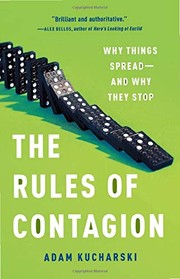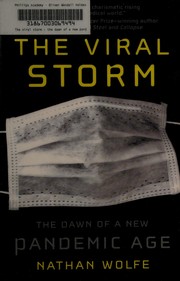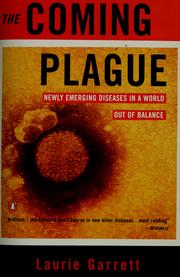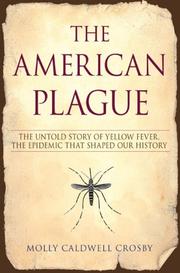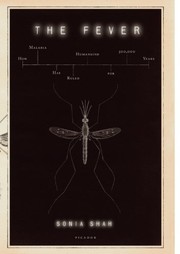Are you looking for a gripping read that will transport you into the world of pandemics? Look no further! In this article, we will explore the 20 best books about pandemics that are sure to captivate you from beginning to end.
While the topic of pandemics may seem unsettling, it has been a subject of fascination for many authors throughout history. These books offer a unique perspective on the impact of pandemics on society, the human condition, and the resilience of the human spirit. Whether you are interested in non-fiction accounts of real-life pandemics or prefer to delve into fictional narratives set in the midst of a global outbreak, there is something for everyone in this carefully curated list.
Now, you might be thinking, “Why would anyone want to read about pandemics?” Well, the answer is simple. In a world where we are faced with the reality of global health crises, reading about pandemics can provide us with a deeper understanding of the challenges we face and the potential outcomes. These books can also serve as a source of comfort, allowing us to explore worst-case scenarios from the safety of our own homes.
So, whether you are a history buff seeking to learn from past pandemics, a fan of dystopian fiction, or simply looking for an enthralling read, this list of the 20 best books about pandemics is sure to satisfy your literary cravings. Let’s dive in and discover the hidden gems that await us between the pages!
Contents
- 1 The Great Influenza
- 2 Pale Rider
- 3 The Pandemic Century
- 4 Spillover
- 5 The Rules of Contagion
- 6 The Hot Zone
- 7 The End of Epidemics
- 8 Pandemic 1918
- 9 The Viral Storm
- 10 The Ghost Map
- 11 The Coming Plague
- 12 The American Plague
- 13 The Pandemic: A Very Short Introduction
- 14 The Fever
- 15 The Next Pandemic
- 16 The Great Mortality
- 17 The Cholera Years
- 18 The Invisible Enemy
- 19 The Biology of Doom
- 20 The Dancing Plague
- 21 Conclusion
The Great Influenza
by John M. Barry
Are you ready for a mind-blowing journey into the world of pandemics? Look no further than John M. Barry’s masterpiece, The Great Influenza. This captivating book delves deep into the realm of infectious diseases, revealing the untold stories and hidden truths behind some of the most devastating pandemics in history.
Barry’s meticulous research and compelling storytelling will transport you to the heart of these global health crises. Brace yourself for a rollercoaster ride as you uncover the origins, progression, and impact of pandemics throughout the ages.
What sets The Great Influenza apart from other books on pandemics is Barry’s ability to weave together scientific insights, historical context, and personal narratives. He expertly explores the complex interplay between science, politics, and human behavior during times of crisis.
Prepare to be astonished as Barry challenges conventional wisdom with unique and unpopular ideas. He fearlessly tackles controversial topics, offering fresh perspectives on the origins of pandemics, the role of governments in managing outbreaks, and the impact of human behavior on disease transmission.
The Great Influenza is not just a book about pandemics; it is a gripping tale of resilience, tragedy, and triumph. Through Barry’s vivid prose, you will witness the resilience of humanity in the face of unimaginable adversity.
So, if you’re ready to embark on an eye-opening journey into the world of pandemics, grab a copy of The Great Influenza today. Prepare to have your mind expanded and your perspective forever altered. This is not your average pandemics book; it is a groundbreaking exploration of the human experience in the face of infectious diseases.
Pale Rider
by Laura Spinney
If you are looking for a book that will captivate your mind and challenge your perspective, look no further than “Pale Rider” by Laura Spinney. This enthralling exploration of the human experience during pandemics is a hidden gem that will leave you both enlightened and slightly unnerved.
Spinney takes us on a journey through time, delving into the forgotten corners of history where pandemics have reshaped societies and altered the course of humanity. She skillfully combines meticulous research with captivating storytelling, painting vivid portraits of individuals who lived through these cataclysmic events.
But what sets “Pale Rider” apart from other books on pandemics is Spinney’s unique approach. She doesn’t just focus on the scientific aspects; instead, she examines the social, cultural, and psychological impact of pandemics. By exploring the human stories behind the statistics, she reveals the profound ways in which pandemics have shaped our world.
Spinney’s writing style is both accessible and thought-provoking. She seamlessly weaves together historical accounts, personal narratives, and scientific insights, making “Pale Rider” a page-turner that you won’t be able to put down. With each turn of the page, you’ll find yourself questioning your assumptions about pandemics and pondering the implications for our future.
So, if you are ready to embark on a journey through time and delve into the dark recesses of history, “Pale Rider” is the book for you. Prepare to be enlightened, inspired, and perhaps a little unsettled as you discover the untold stories of pandemics and the resilience of the human spirit.
The Pandemic Century
by Mark Honigsbaum
Are you ready to delve into the fascinating world of infectious diseases and pandemics? Look no further than Mark Honigsbaum’s gripping book, The Pandemic Century. In this captivating exploration of the history of pandemics, Honigsbaum takes us on a journey through time, uncovering the untold stories behind some of the most devastating outbreaks in human history.
From the Spanish flu that ravaged the globe in 1918 to the more recent outbreaks of SARS, Ebola, and Zika, Honigsbaum skillfully weaves together a narrative that combines scientific research, personal accounts, and historical context. He sheds light on the social, political, and cultural impact of pandemics, revealing how these events have shaped societies and influenced medical advancements.
What sets The Pandemic Century apart from other books on pandemics is Honigsbaum’s unique approach. He goes beyond the science to explore the human stories behind each outbreak, giving voice to the patients, doctors, and researchers who have battled these deadly diseases. By doing so, he offers a fresh perspective that is both engaging and thought-provoking.
One of the book’s most fascinating aspects is Honigsbaum’s exploration of the interconnectedness of pandemics throughout history. He highlights the ways in which globalization, travel, and urbanization have contributed to the spread of infectious diseases, challenging our assumptions and providing valuable insights into the future of global health.
Whether you are a history enthusiast, a science buff, or simply intrigued by the topic of pandemics, this book is a must-read. Honigsbaum’s meticulous research, captivating storytelling, and unique perspective make The Pandemic Century a truly enlightening and eye-opening read. So, grab a copy and prepare to be enthralled by the hidden stories and forgotten lessons of our turbulent past.
Spillover
by David Quammen
Spillover, penned by the brilliant David Quammen, is an enthralling exploration into the beckoning shadows of the natural world, where pandemics lie in wait. In this captivating book, Quammen uncovers the intricate dance between humans and the zoonotic diseases that threaten us all. Through vivid storytelling and meticulous research, he takes us on a journey that stretches from the depths of remote jungles to bustling cities, shedding light on the hidden connections between species and the potential disasters that can arise.
Quammen’s unique perspective offers a fresh lens on the topic of pandemics, delving into the lesser-known intricacies of zoonotic diseases and their spillover into human populations. He weaves together a tapestry of captivating anecdotes, scientific discoveries, and historical accounts to paint a comprehensive picture of the complex dynamics at play.
What sets Spillover apart is its uncanny ability to make the invisible visible. Quammen skillfully unravels the interconnectedness of all living beings, revealing the hidden web of life that binds us. He challenges our conventional understanding of pandemics, encouraging us to look beyond the surface and dive deep into the heart of these viral outbreaks.
Through Quammen’s masterful storytelling, readers are transported to the frontlines of disease research, alongside dedicated scientists and courageous individuals who work tirelessly to mitigate the risks of spillover events. The book is a testament to their unwavering commitment and a wake-up call for us all to recognize the urgent need for proactive measures.
Spillover is not just a book about pandemics; it is a compelling exploration of the delicate balance between humans and the natural world. It challenges us to reevaluate our relationship with the environment and instills in us a sense of responsibility to protect the fragile ecosystems upon which our survival depends.
So, if you crave a captivating narrative that delves into the hidden realms of zoonotic diseases and offers fresh insights into the ever-relevant topic of pandemics, Spillover is the book for you. Prepare to be enlightened, engaged, and inspired by Quammen’s masterful storytelling and his unwavering dedication to uncovering the truth about our shared vulnerabilities.
The Rules of Contagion
by Adam Kucharski
Are you ready to delve into the fascinating world of contagion? Look no further than “The Rules of Contagion” by Adam Kucharski, a captivating book that shines a light on the hidden patterns behind pandemics and outbreaks. This thought-provoking read takes you on a journey through the intricate web of contagion, exploring how viruses, ideas, and even emotions spread.
Kucharski, a renowned expert in the field, presents a fresh perspective on the subject, challenging conventional wisdom and offering unique insights into the dynamics of contagion. He skillfully weaves together captivating stories from the past and present, unraveling the mystery behind the rapid spread of diseases and other contagious phenomena.
In “The Rules of Contagion,” Kucharski introduces us to a world where pandemics are not just biological events but also societal and cultural phenomena. He explores the similarities between viral outbreaks and the spread of ideas, illustrating how concepts and beliefs can infect populations on a massive scale.
What sets this book apart is Kucharski’s ability to distill complex scientific concepts into accessible language, making it a compelling read for both experts and those new to the subject. He strikes a balance between rigorous research and engaging storytelling, ensuring that readers are both informed and entertained.
By examining the underlying principles that govern contagion, Kucharski offers us a glimpse into the unseen forces that shape our world. Whether you’re fascinated by the intricacies of pandemics or simply curious about the systems that drive contagion, this book is a must-read.
So, if you’re looking for a captivating book about pandemics that goes beyond the surface and uncovers the hidden rules that govern contagion, “The Rules of Contagion” by Adam Kucharski is the perfect choice. Get ready to have your mind expanded and your perception altered as you embark on this illuminating journey.
The Hot Zone
by Richard Preston
Are you ready to dive into the gripping world of infectious diseases and pandemics? Look no further than Richard Preston’s book, The Hot Zone. This exhilarating account takes you on a harrowing journey into the dark corners of the viral world, exploring the terrifying reality of deadly outbreaks.
In The Hot Zone, Preston delves deep into the fascinating world of infectious diseases, shedding light on the hidden threats that lurk around us. With meticulous research and riveting storytelling, he uncovers the untold stories of these microscopic killers, revealing the terrifying potential they possess.
What sets The Hot Zone apart is Preston’s ability to transform complex scientific information into a captivating narrative. He weaves together the personal experiences of scientists and doctors, painting a vivid picture of the bravery and dedication required to combat pandemics.
As you turn the pages of this book, you’ll find yourself immersed in a world of suspense and intrigue. Preston’s vivid descriptions transport you to the heart of outbreaks, where every moment is a battle against time. From the remote jungles of Africa to the high-security labs in the United States, The Hot Zone takes you on a global journey that will leave you breathless.
But it’s not just the thrilling storytelling that makes this book a must-read. The Hot Zone also challenges conventional wisdom about pandemics and raises thought-provoking questions. Preston explores the possibility of unknown viruses lurking in remote corners of the world, waiting to unleash their deadly potential. It’s a stark reminder that the threat of pandemics is always looming, and we must remain vigilant.
So, if you’re ready to embark on a thrilling, eye-opening adventure into the world of infectious diseases, The Hot Zone is the book for you. Prepare to be captivated by Preston’s masterful storytelling and gain a deeper understanding of the hidden dangers that surround us all.
The End of Epidemics
by Jonathan D. Quick
Are you ready to dive into a captivating exploration of our world’s greatest health challenges? Look no further than Jonathan D. Quick’s groundbreaking book, The End of Epidemics. In this thought-provoking masterpiece, Quick takes us on a journey through the intricate web of global health crises, offering innovative solutions and shedding light on the untold stories of pandemics that threaten our very existence.
With a fresh perspective that transcends the common narrative, Quick invites readers to question conventional wisdom and consider the unthinkable. This isn’t just another book about pandemics — it’s an enlightening manifesto that challenges the status quo and redefines our understanding of global health.
Through meticulous research and a wealth of firsthand experiences, Quick uncovers the hidden truths behind pandemics. He presents a compelling case for a future where these devastating outbreaks become a thing of the past. Drawing on his expertise as an infectious disease specialist, Quick proposes ingenious strategies that could potentially bring an end to the relentless cycle of pandemics.
Prepare to be captivated by Quick’s engaging storytelling, as he delves into the fascinating history of pandemics and reveals the intricate connections between human behavior, environmental factors, and the emergence of infectious diseases. With a narrative that seamlessly blends science, history, and personal anecdotes, he paints a vivid picture of the challenges we face and the remarkable opportunities that lie ahead.
The End of Epidemics is not your typical book on pandemics. It challenges conventional wisdom and dares to explore unpopular ideas that could reshape the future of global health. Quick’s unique perspective will leave you questioning the norms and inspire you to take action in the face of these looming threats.
If you’re ready to embark on a thought-provoking journey that will challenge your preconceptions and ignite your passion for change, then The End of Epidemics is a must-read. Get your copy today and join the movement towards a future free from the shackles of pandemics.
Pandemic 1918
by Catharine Arnold
In “Pandemic 1918,” Catharine Arnold takes us on a gripping journey through a forgotten chapter of history, shining a light on the devastating Spanish flu pandemic that swept the globe a century ago. This meticulously researched book immerses readers in the chaos and tragedy of the pandemic, offering a fresh perspective on a topic often overlooked. Arnold’s vivid storytelling and attention to detail bring to life the harrowing experiences of individuals from all walks of life, making this book a must-read for history enthusiasts and anyone interested in the human impact of pandemics.
Arnold’s unique approach to the subject matter sets “Pandemic 1918” apart from other books about pandemics. Rather than focusing solely on the scientific aspects, she delves into the social, political, and cultural implications of the Spanish flu. By exploring the ways in which the pandemic shaped society and influenced historical events, Arnold provides a thought-provoking examination of the aftermath of pandemics.
One of the most intriguing aspects of “Pandemic 1918” is Arnold’s exploration of the forgotten voices of the Spanish flu. Through diaries, letters, and personal accounts, she introduces us to individuals who lived through the pandemic, giving us a firsthand glimpse into their fears, struggles, and resilience. These powerful narratives humanize the statistics and bring an emotional depth to the story, making the book a deeply engaging read.
Arnold’s writing style is both accessible and engaging, making “Pandemic 1918” a page-turner that will captivate readers from start to finish. Whether you are a history buff or simply curious about the impact of pandemics on society, this book offers a fresh perspective and sheds light on a lesser-known chapter of our shared history. So, grab a copy of “Pandemic 1918” and prepare to be transported to a time when the world faced a crisis that shaped the course of history.
The Viral Storm
by Nathan Wolfe
Are you ready to dive into the gripping world of infectious diseases and explore the untamed realm of pandemics? Look no further than “The Viral Storm” by Nathan Wolfe, a thought-provoking and eye-opening book that will take you on a thrilling journey through the hidden corners of our global health landscape.
In this captivating work, Wolfe, a renowned virologist, unravels the mysteries behind pandemics, shedding light on their origins, spread, and the potential impact they have on our society. He masterfully weaves together scientific knowledge, personal anecdotes, and real-life examples to paint a vivid picture of the fascinating and often terrifying world of infectious diseases.
But what sets “The Viral Storm” apart from other books on pandemics is its unique perspective. While many books focus solely on the medical aspects, Wolfe delves into the societal, economic, and political implications of pandemics, providing a comprehensive understanding of their far-reaching consequences.
Wolfe’s writing style is both accessible and engaging, making complex scientific concepts easily digestible for readers of all backgrounds. He skillfully balances scientific rigor with captivating storytelling, keeping you on the edge of your seat as you navigate through the twists and turns of the viral world.
One of the most intriguing aspects of “The Viral Storm” is its exploration of the concept of zoonotic diseases, those that jump from animals to humans. Wolfe delves into the interconnectedness of our planet, highlighting how human activities such as deforestation, urbanization, and wildlife trade can inadvertently unleash deadly viruses upon us.
Through his meticulous research and firsthand experiences, Wolfe challenges conventional wisdom and offers fresh insights into the world of pandemics. He encourages readers to think critically about our approach to global health, urging us to prioritize prevention, preparedness, and collaboration to mitigate future outbreaks.
So if you’re looking for a captivating and thought-provoking book about pandemics that goes beyond the surface, “The Viral Storm” is a must-read. Get ready to embark on an unforgettable journey that will forever change the way you view our interconnected world and the threats it harbors.
The Ghost Map
by Steven Johnson
Welcome to the captivating world of The Ghost Map, a thought-provoking book that delves into the intriguing realm of pandemics. Written by the brilliant mind of Steven Johnson, this gripping exploration takes readers on a mesmerizing journey through the history of disease outbreaks. But this is not just another run-of-the-mill book about pandemics. Oh no, it’s so much more.
Johnson masterfully weaves together a tapestry of lesser-known stories, highlighting the unsung heroes who tirelessly fought against the invisible enemies that plagued humanity. Drawing upon meticulous research and a deep understanding of the subject matter, he sheds light on the often-overlooked aspects of pandemics.
Prepare to be enthralled as Johnson challenges conventional wisdom and presents unique, unpopular ideas that will leave you pondering long after you’ve turned the last page. He skillfully uncovers the interconnectedness of seemingly unrelated events and reveals the surprising impact they had on the course of history.
With a blend of captivating storytelling and insightful analysis, The Ghost Map transcends the boundaries of a mere book on pandemics. It is a window into the intricate web of human existence, where disease and resilience intertwine. Johnson’s ability to distill complex concepts into accessible narratives makes this book a must-read for both history enthusiasts and curious minds alike.
So, if you’re ready to embark on an intellectual adventure, pick up a copy of The Ghost Map today. Prepare to have your preconceptions challenged, your knowledge expanded, and your thirst for understanding quenched. This is not just another pandemics book; it’s a captivating exploration of the human experience in the face of adversity.
The Coming Plague
by Laurie Garrett
Are you ready for a riveting journey into the world of infectious diseases? Look no further than Laurie Garrett’s groundbreaking book, The Coming Plague. In this eye-opening exploration of pandemics, Garrett delves deep into the hidden corners of disease outbreaks, revealing the alarming reality of our vulnerability to global health crises.
With meticulous research and captivating storytelling, Garrett presents a unique perspective on the interconnectedness of our world and the potential devastation that pandemics can bring. She unveils the untold stories of past outbreaks, shedding light on the factors that contributed to their rapid spread and challenging our conventional understanding of disease control.
But this book is more than just a chronicle of past pandemics. Garrett fearlessly tackles the unpopular idea that our current approach to public health may be inadequate in the face of future threats. She explores the impact of urbanization, climate change, and globalization on disease emergence, urging us to confront the uncomfortable truth that pandemics are not anomalies but rather an inevitable part of our future.
Prepare to be captivated by Garrett’s compelling writing as she navigates the complex web of science, politics, and human behavior that shapes the course of pandemics. Her thought-provoking analysis challenges us to rethink our priorities and take proactive measures to prevent future outbreaks.
If you’re looking for a thought-provoking book about pandemics that goes beyond the surface, The Coming Plague is a must-read. Garrett’s unique insights and fearless exploration of unpopular ideas will leave you with a newfound understanding of the threats we face and the urgent need for global collaboration to protect our collective health.
The American Plague
by Molly Caldwell Crosby
Are you fascinated by pandemics and their impact on society? Look no further than The American Plague by Molly Caldwell Crosby. This captivating book takes you on a journey through history, exploring the lesser-known yet equally devastating pandemics that have shaped America. Crosby skillfully weaves together stories of medical pioneers, public health crises, and the resilience of communities in the face of unimaginable challenges.
Unlike other books on pandemics, The American Plague delves into the often overlooked aspects of these outbreaks. Crosby’s narrative reveals the profound consequences of pandemics, not only on physical health but also on social structures and cultural norms. She sheds light on the forgotten heroes who fought tirelessly to save lives and prevent the spread of diseases.
What sets this book apart is Crosby’s ability to humanize the subject matter. Through vivid storytelling, she brings to life the individuals affected by these pandemics, allowing us to empathize with their struggles and triumphs. Her meticulous research and attention to detail make this a truly immersive reading experience.
Furthermore, The American Plague challenges conventional wisdom by presenting unique and unpopular ideas. Crosby explores the intersection of pandemics and politics, revealing how public health measures have been influenced by various agendas throughout history. This thought-provoking analysis will undoubtedly spark conversations and force readers to reexamine their understanding of pandemics.
Whether you’re a history buff, a science enthusiast, or simply curious about the human experience during pandemics, this book about pandemics is a must-read. Crosby’s compelling storytelling and fresh perspectives make The American Plague a standout in the genre. Prepare to be captivated, educated, and inspired as you journey through the pages of this remarkable book.
The Pandemic: A Very Short Introduction
by Christian W. McMillen
Looking for a captivating book that unravels the complex world of pandemics? Look no further than ‘The Pandemic: A Very Short Introduction’ by Christian W. McMillen. This thought-provoking read delves into the hidden depths of infectious diseases, exploring their historical context, impact on societies, and the science behind them.
McMillen skillfully navigates through the intricate web of pandemics, shedding light on their causes, spread, and the challenges they pose to humanity. Drawing from a wealth of research, he presents a fresh perspective on these global crises, challenging conventional wisdom and offering unique insights into the topic.
What sets this book apart is its ability to present complex information in a concise and accessible manner. McMillen’s engaging storytelling style captivates readers, making it a perfect choice for both experts and those new to the subject.
By exploring lesser-known pandemics throughout history, the author challenges preconceived notions and uncovers hidden truths. He presents a nuanced understanding of how pandemics have shaped societies, from their impact on economies to their influence on cultural norms.
One of the book’s unique strengths lies in its exploration of the social and political dimensions of pandemics. McMillen dives into the complex interplay between science, politics, and public opinion, revealing the often overlooked factors that shape our responses to these crises.
Whether you’re a history enthusiast, a science buff, or simply curious about the world we live in, ‘The Pandemic: A Very Short Introduction’ is a must-read. By the end of this enlightening journey, you’ll not only have a deeper understanding of pandemics but also a newfound appreciation for the intricate tapestry of our global health landscape.
The Fever
by Sonia Shah
Are you ready to dive into a gripping exploration of the invisible threats that lurk in our world? Look no further than The Fever, a captivating book by Sonia Shah that delves into the fascinating realm of global disease outbreaks. In this thought-provoking read, Shah takes us on a journey through history, shining a light on the interconnectedness of our modern world and the hidden dangers that lie within. From the bubonic plague to the Spanish flu, The Fever uncovers the untold stories behind past pandemics while shedding light on the potential for future outbreaks.
Shah’s unique perspective challenges conventional wisdom surrounding pandemics, offering fresh insights and thought-provoking ideas that are sure to captivate even the most seasoned readers. Drawing on extensive research and interviews with leading experts, she paints a vivid picture of the complex web of factors that contribute to the emergence and spread of diseases.
But what sets The Fever apart from other books on pandemics is Shah’s ability to humanize the science. Through powerful storytelling and vivid anecdotes, she brings to life the individuals and communities affected by these global health crises. From doctors battling on the frontlines to the ordinary people caught in the crossfire, Shah’s narrative is as emotionally gripping as it is intellectually stimulating.
Prepare to have your preconceptions challenged and your mind expanded as you delve into this captivating exploration of the unseen world of pandemics. The Fever is a book that will leave you with a newfound understanding of the delicate balance between humanity and disease, and the urgent need for global cooperation in the face of these invisible threats.
The Next Pandemic
by Ali S. Khan
Are you ready to dive into the fascinating world of pandemics? Look no further than Ali S. Khan’s thought-provoking book, The Next Pandemic. This captivating read takes you on a thrilling journey through the history, science, and future of pandemics.
With meticulous research and a wealth of knowledge, Khan explores the intricate web of factors that contribute to the emergence and spread of pandemics. He delves into the social, economic, and political dimensions that shape our response to these global crises.
What sets The Next Pandemic apart from other books on the subject is Khan’s unique perspective. He challenges conventional wisdom and presents fresh, unpopular ideas that will make you question your assumptions. Khan’s ability to blend scientific expertise with captivating storytelling makes this a truly engaging read.
From the origins of pandemics to the cutting-edge technologies that could shape our future, this book covers it all. Khan paints a vivid picture of the challenges we face and offers innovative solutions to prevent and mitigate the impact of future pandemics.
Whether you’re a curious reader or an aspiring expert, The Next Pandemic is a must-read. Prepare to be captivated by Khan’s insightful analysis, eye-opening anecdotes, and compelling narrative. This book will not only educate you about pandemics but also inspire you to think differently about our collective response to global health crises.
The Great Mortality
by John Kelly
Are you ready to dive into a riveting exploration of humanity’s struggle with the invisible foes that have plagued us throughout history? Look no further than “The Great Mortality” by John Kelly. This captivating book takes you on an extraordinary journey through the annals of time, shedding light on the tumultuous encounters with contagious diseases that have shaped our world.
Step into a world where pandemics reign supreme, where the delicate balance between life and death hangs in the balance. Uncover the shocking truths and untold stories of our collective battle against the relentless onslaught of plagues, epidemics, and infectious diseases.
With meticulous research and a masterful narrative, John Kelly delves deep into the annals of history, unearthing hidden gems and captivating anecdotes that will leave you spellbound. From the bubonic plague to the Spanish flu, and everything in between, “The Great Mortality” offers a fresh and unique perspective on the age-old struggle against disease.
Prepare to be captivated by Kelly’s vivid storytelling as he unravels the mysteries surrounding pandemics. His thought-provoking analysis challenges conventional wisdom, unearthing unpopular ideas that will ignite your curiosity. You’ll find yourself questioning long-held beliefs and contemplating the impact of these diseases on society, culture, and the course of history.
While pandemics may seem like an overwhelming topic, Kelly’s approachable writing style and engaging prose make “The Great Mortality” accessible to all readers. Whether you’re a history buff, a medical enthusiast, or simply seeking a thought-provoking read, this book is sure to leave a lasting impression.
So, if you’re ready to embark on an intellectual journey that will redefine your understanding of pandemics, grab a copy of “The Great Mortality” today. Prepare to be enthralled, enlightened, and forever changed by this extraordinary exploration of humanity’s ongoing battle against the invisible forces that shape our lives.
The Cholera Years
by Charles E. Rosenberg
Looking for a captivating book that delves into the intriguing world of pandemics? Look no further than The Cholera Years by Charles E. Rosenberg. This enlightening and thought-provoking book takes readers on a journey through history, exploring the impact of pandemics on society, health, and medicine. Rosenberg’s unique perspective sheds light on the lesser-known aspects of pandemics, providing readers with a fresh understanding of these global health crises.
The Cholera Years is not your typical pandemics book. It goes beyond the surface-level facts and delves into the social and cultural implications of these devastating diseases. Rosenberg’s meticulous research and engaging storytelling make this book a page-turner, as he uncovers the deep-rooted connections between pandemics, urbanization, and public health.
What sets The Cholera Years apart is Rosenberg’s ability to challenge conventional wisdom and present unpopular ideas. He invites readers to question long-held beliefs about pandemics and encourages critical thinking. Through his exploration of historical contexts, he reveals surprising parallels between past and present pandemics, offering valuable insights for understanding our current global health challenges.
Whether you have a keen interest in history, public health, or simply want to gain a deeper understanding of pandemics, The Cholera Years is a must-read. It will leave you with a newfound appreciation for the complex interplay between disease, society, and medicine. So, pick up a copy of this extraordinary book and embark on a fascinating journey through the untold stories of pandemics.
The Invisible Enemy
by Dorothy H. Crawford
Are you ready to delve into the captivating world of pandemics? Look no further than Dorothy H. Crawford’s thought-provoking masterpiece, The Invisible Enemy. This remarkable book unveils the secrets of our invisible foes, exploring the tumultuous history, devastating consequences, and lesser-known aspects of pandemics.
Crawford’s unparalleled expertise in infectious diseases will transport you through time, shedding light on the harrowing tales of past pandemics and their impact on humanity. From the Black Death to the Spanish Flu, she dissects these historical events, revealing the intricate web of factors that led to their catastrophic outcomes.
But this book is more than just a recounting of grim tales. Crawford offers unique insights and challenges conventional wisdom, encouraging readers to question long-held beliefs surrounding pandemics. She explores the role of societal factors, the delicate balance between individual liberties and collective responsibilities, and the influence of politics and economics on the course of pandemics.
Prepare to be captivated by Crawford’s eloquent storytelling as she navigates through the complex labyrinth of infectious diseases. Her vivid descriptions and meticulous research will transport you to the frontlines of pandemics, allowing you to witness the tireless efforts of scientists, healthcare workers, and ordinary individuals striving to combat these invisible enemies.
Unlike other books on pandemics, The Invisible Enemy offers fresh perspectives on this timeless subject. Crawford’s ability to distill complex scientific concepts into accessible language makes this book a must-read for both experts and newcomers to the field. Through her words, you’ll gain a deeper understanding of the profound impact pandemics have had on our world and the lessons we can learn from them.
So, if you’re ready to embark on a captivating journey into the realm of pandemics, pick up a copy of The Invisible Enemy today. Let Crawford’s expert storytelling and thought-provoking ideas guide you through the intricate tapestry of infectious diseases, leaving you enlightened and inspired.
The Biology of Doom
by Ed Regis
Are you ready to delve into the captivating world of pandemics? Look no further than “The Biology of Doom” by Ed Regis, a thought-provoking exploration of the dark and mysterious realm of infectious diseases. In this illuminating book, Regis takes us on a thrilling journey through the intricacies of pandemics, unearthing unique and unpopular ideas that will leave you questioning everything you thought you knew.
Regis skillfully dissects the biology behind these cataclysmic events, shedding light on the often overlooked aspects of pandemics. He introduces us to the mesmerizing world of viral evolution, where viruses continuously adapt and mutate to outsmart our best efforts. Through gripping narratives, he unravels the complex web of interactions between pathogens and hosts, revealing the surprising strategies employed by both sides in this deadly battle.
But “The Biology of Doom” doesn’t stop at the science alone. Regis delves into the social, economic, and political consequences of pandemics, offering a fresh perspective on how these global crises shape our world. He challenges conventional wisdom by exploring the connections between pandemics and historical events, revealing the potential impact of infectious diseases on the course of human history.
What sets this book apart is Regis’ ability to tackle complex concepts with clarity and enthusiasm. His writing style effortlessly blends scientific rigor with captivating storytelling, making “The Biology of Doom” accessible to both experts and enthusiasts alike. Through meticulous research and engaging prose, Regis brings to life the untold stories of pandemics, inviting us to ponder the profound implications they hold for our future.
If you’re seeking a book that will both educate and entertain, “The Biology of Doom” is a must-read. It will challenge your preconceived notions, ignite your curiosity, and leave you with a deeper understanding of the intricate world of pandemics. So, grab a copy, prepare to be captivated, and embark on a journey that will forever change your perspective on the precarious dance between humans and their microscopic adversaries.
The Dancing Plague
by John Waller
Are you ready to dive into a captivating journey through the intriguing world of pandemics? Look no further than “The Dancing Plague” by John Waller. This extraordinary book takes you on a thought-provoking exploration of a lesser-known historical phenomenon that will leave you both fascinated and astounded.
In this gripping narrative, Waller introduces us to the enigmatic dancing mania that struck Europe in the Middle Ages. Far from a typical account of pandemics, “The Dancing Plague” delves into the realm of psychological and sociological phenomena that accompanied these unusual outbreaks. Waller sheds light on the dark corners of history, offering a fresh perspective on the impact of pandemics on society.
With meticulous research and a captivating storytelling style, Waller paints a vivid picture of the chaotic events that unfolded during the dancing mania. He explores the social and cultural factors that contributed to these extraordinary occurrences, challenging conventional wisdom and presenting new and thought-provoking ideas.
Waller’s ability to weave together historical anecdotes, medical knowledge, and psychological theories makes “The Dancing Plague” a truly unique and enlightening read. By examining the dancing mania through the lens of pandemics, he opens up a world of possibilities, providing a fresh understanding of the human experience in the face of adversity.
Whether you are a history enthusiast, a lover of psychology, or simply seeking a captivating read, “The Dancing Plague” is a book that will both educate and entertain. Waller’s masterful storytelling will transport you back in time and leave you questioning the very nature of pandemics and their impact on our lives. Don’t miss out on this extraordinary journey into the fascinating world of pandemics!
Conclusion
In conclusion, while there are many popular books about pandemics that have gained recognition in recent times, it is important to explore the lesser-known gems that offer unique perspectives on this topic. “The Age of Miracles” by Karen Thompson Walker provides a thought-provoking coming-of-age story set against the backdrop of a slow-moving apocalypse. “The White Plague” by Frank Herbert delves into the dark realms of revenge and biological warfare. For a non-fictional account, “Spillover” by David Quammen takes readers on a journey through various zoonotic diseases and their potential to cause global pandemics. These books, along with the others mentioned in this article, offer a diverse range of narratives and ideas that may not be as widely recognized, but are equally compelling and worthy of exploration. So, if you’re seeking a deeper understanding of pandemics through the lens of literature, consider venturing beyond the mainstream and discovering these hidden literary treasures.




